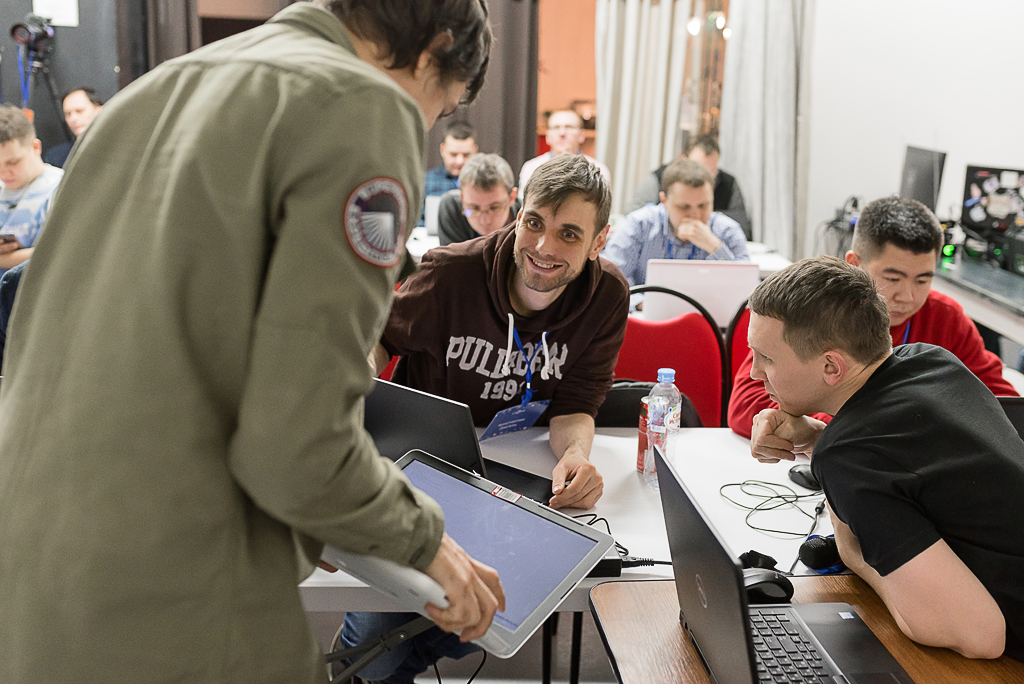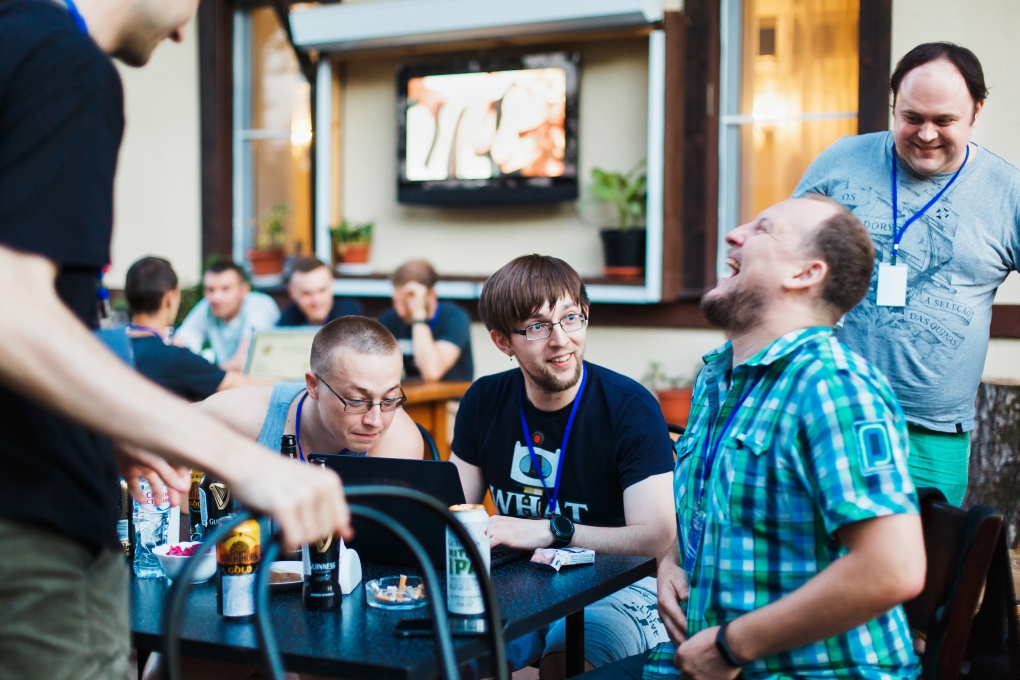Slurm: intense by Kubernetes. Program and bonuses
On May 27-29, we are holding the fourth Slurm: intensive by Kubernetes.

Bonus: online courses on Docker, Ansible, Ceph
We removed topics from Slerma that are important for working with Kubernetes, but do not directly relate to k8s. How, why and what happened - under the cut.
All participants in Slurm-4 will have access to these courses.
Full moneyback on the first day
At the St. Petersburg Slurme two participants left very negative reviews . I regretted that it was impossible to return to the past and part with them without mutual claims.
If you understand that you don’t like at Slurm , write to any of the organizers on the first day . We will disable access and refund the full participation price.
Technical Advice
If anyone knows Dmitry Simonov (he gathered the tech directors club), we invited him to Slurm (to learn, not to perform). He promised to advise everyone. It is unlikely that it will be interesting to administrators and developers, but managers from IT - very much so.
What is Slurm

Slurm-4: basic course (May 27-29)
Designed for those who first sees Kubernetes or wants to systematize knowledge.
Each participant will create its own cluster in the cloud Selectel and add the application there.
Price: 25 thousand
Topic 1: Introduction to Kubernetes, main components
• Introduction to k8s technology. Description, application, concepts
• Pod, ReplicaSet, Deployment, Service, Ingress, PV, PVC, ConfigMap, Secret
• Practice
Topic # 2: Cluster device, main components, fault tolerance, k8s network
• Cluster device, main components, fault tolerance
• k8s network
Theme number 3: Kubespray, tuning and tuning cluster Kubernetes
• Kubespray, tuning and tuning cluster Kubernetes
• Practice
Topic # 4: Ceph, cluster setup and features of production work
• Ceph, cluster configuration and production features
• Practice: setting ceph
Topic 5: Advanced Kubernetes Abstractions
• DaemonSet, StatefulSet, RBAC, Job, CronJob, Pod Scheduling, InitContainer
Topic 6: Introduction to Helm
• Introduction to Helm
• Practice
Topic 7: Publication of services and applications
• Review of methods of publishing services: NodePort vs LoadBalancer vs Ingress
• Ingress controller (Nginx): we balance incoming traffic
• Cert-manager: automatically get SSL / TLS certificates
• Practice
Topic 8: Logging and Monitoring
• Cluster Monitoring, Prometheus
• Cluster Logging, Fluentd / Elastic / Kibana
• Practice
Topic 9: CI / CD, building a deployment into a cluster from scratch
Topic 10: Practical work, application dockerization and launch into the cluster
MegaSlorm: advanced course (May 31 - June 2)
Designed for engineers and architects Kubernetes, as well as graduates of the basic course.
We configure the cluster so that in parallel to start updating the cluster components and deploy to the cluster.
Price: 60 thousand (45 thousand for Slurm-4 participants)
Topic number 1: The process of creating a failover cluster from within
• Work with Kubespray
• Installation of optional components
• Testing and troubleshooting the cluster
• Practice
Topic 2: Authorization in a cluster using an external provider
• LDAP (Nginx + Python)
• OIDC (Dex + Gangway)
• Practice
Topic 3: Network policy
• Introduction to CNI
• Network Security Policy
• Practice
Topic 4: Secure and Highly Available Applications in a Cluster
• PodSecurityPolicy
• PodDisruptionBudget
Topic 5: Kubernetes. Looking under the hood
• controller structure
• Operators and CRD
• Practice
Topic 6: Stateful applications in a cluster
• Starting a database cluster using PostgreSQL
• Run RabbitMQ Cluster
• Practice
Topic 7: Keeping secrets
• Secrets Management in Kubernetes
• Vault
Topic number 8: Horizontal Pod Autoscaler
• Theory
• Practice
Topic 9: Backup and Restore after Failures
• Backup and restore a cluster using Heptio Velero (formerly Ark) and etcd
• Practice
Topic 10: Deploy applications
• Lint
• Templating and Deployment Tools
• Deployment strategies
Topic number 11: Practical work
• Build CI / CD for application deployment
• Cluster Update
Docker, Ansible and Ceph

History tour
The first Slurm was an experiment. The speakers finished the presentations literally on the stage, and in the audience were administrators of such a level that it is fitting to invite them to the speakers.
This basic course turned out at the second Slörme: 80% of the participants first saw Cubernets, and a third never worked with Docker.
It was obvious how difficult it is for people to listen to the Docker lecture in the morning, and in the evening to work with him in combat mode.
Ceph caused a lot of difficulties. And there were 20 people in the audience who definitely need to explain Ceph, and another 60 who don't need Ceph at all.
On the third Slurm, we brought Docker and Ansible into separate webinars, freeing up more time for Cooberntes. The solution turned out to be practical in nature and not completed in terms of implementation: the lecture was not interesting for experienced guys, and the discussion was for newcomers.
By the fourth Slerm, we did online courses on Docker, Ansible, and Ceph. The idea is simple: who needs it, thoughtfully passes the course, who does not need it, calmly ignores it. Judging by the group of testers, the Docker course takes 6-8 hours. Ansible and Ceph are not yet timed.
Disclaimer:
- the course is experimental. Some decisions will certainly fail.
- The platform (Stepik.org) is damp and we have not worked with it before. Surely there will be lining and stupid.
- Course tested only on Southbridge employees. Surely you have to finish something on the go.

Only the other day in Chatik the first Slurm recalled how cool and fun it was, despite all the organizational horrors. The first to get the most vivid impressions. Let's see what will happen to the first students of online courses. :)

')
Source: https://habr.com/ru/post/449490/
All Articles